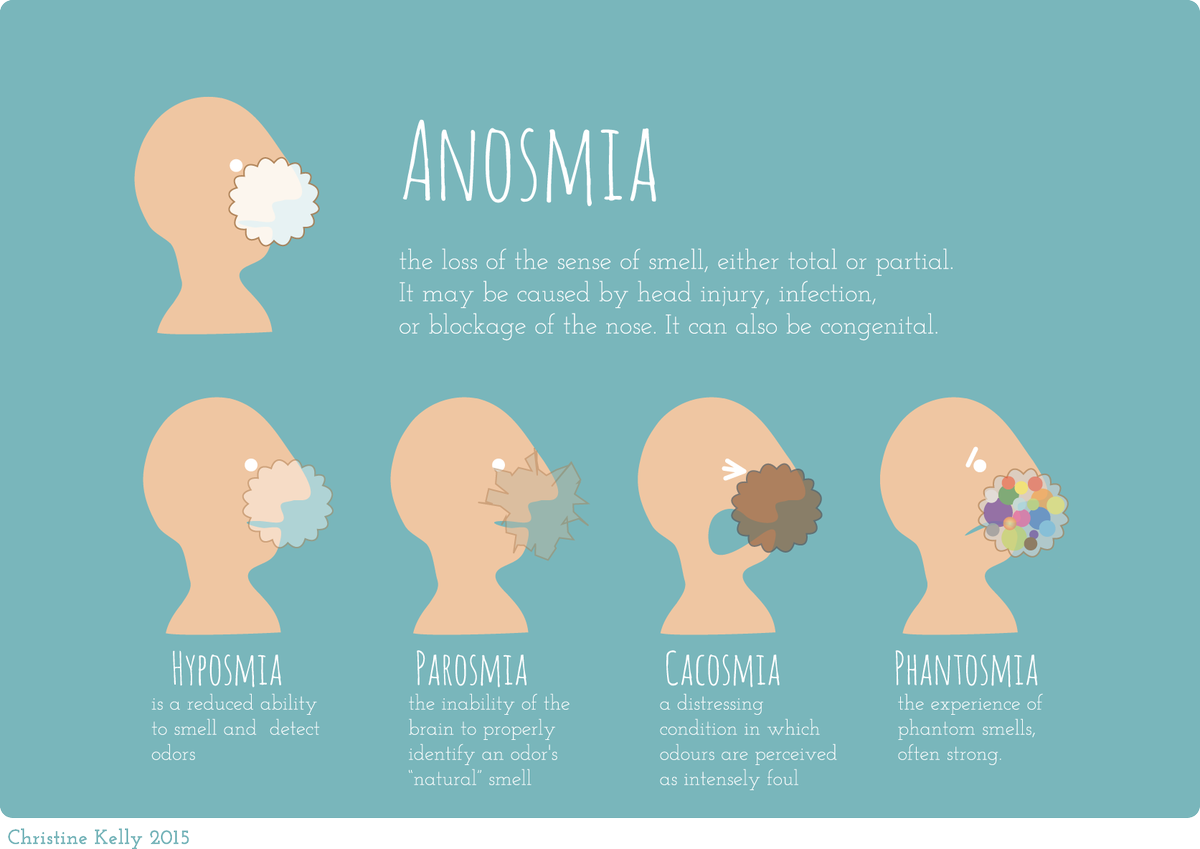In See What I'm Saying, the author touches on anosmia, the loss of sense of smell. Karl Wuensch lost his ability to smell dangerous odors, food, and interestingly people. Wuench describes a phenomenon that we too became familiar with recently during the Covid pandemic. Many people who contracted Covid-19 reported symptoms of loss of smell but regained it after a while. There were even those who never regained their sense of smell or regained it but it did not work as it previously did. One study found that the loss of smell associated with COVID-19 may have links to an increased risk of depressed mood and anxiety.
Smell plays an important role in interactions with humans and eating, which Wuensch points out as an issue he struggles with. It is psychologically distressing constantly being unable to use a crucial sensory function. One article recorded responses from a few women saying:
- "I mean, I can force myself to eat it, but it's not enjoyable like it used to be."
- "It's very, very, very uncomfortable, upsetting. Like I said, I really enjoy food. From going to love and enjoying the taste of food, I can't really enjoy or say I love food anymore."
- "It gets emotional too, because like I said, I cook a lot for my children. I got five children, I got two grandbabies and I cook a lot. But now it's like, I don't even want to cook. My cooking has changed because I can't smell or taste my food."
https://www.medicalnewstoday.com/articles/covid-19-linking-loss-of-smell-depression-and-anxiety
https://consumer.healthday.com/b-10-26-how-folks-are-coping-with-post-covid-loss-of-smell-taste-2655363334.html

Diana,
ReplyDeleteThis is an interesting topic and it is crazy to think that people still have not gained their smell back. The quote, "I mean, I can force myself to eat it, but it's not enjoyable like it used to be." points out the effects not having smell can have on the brain.